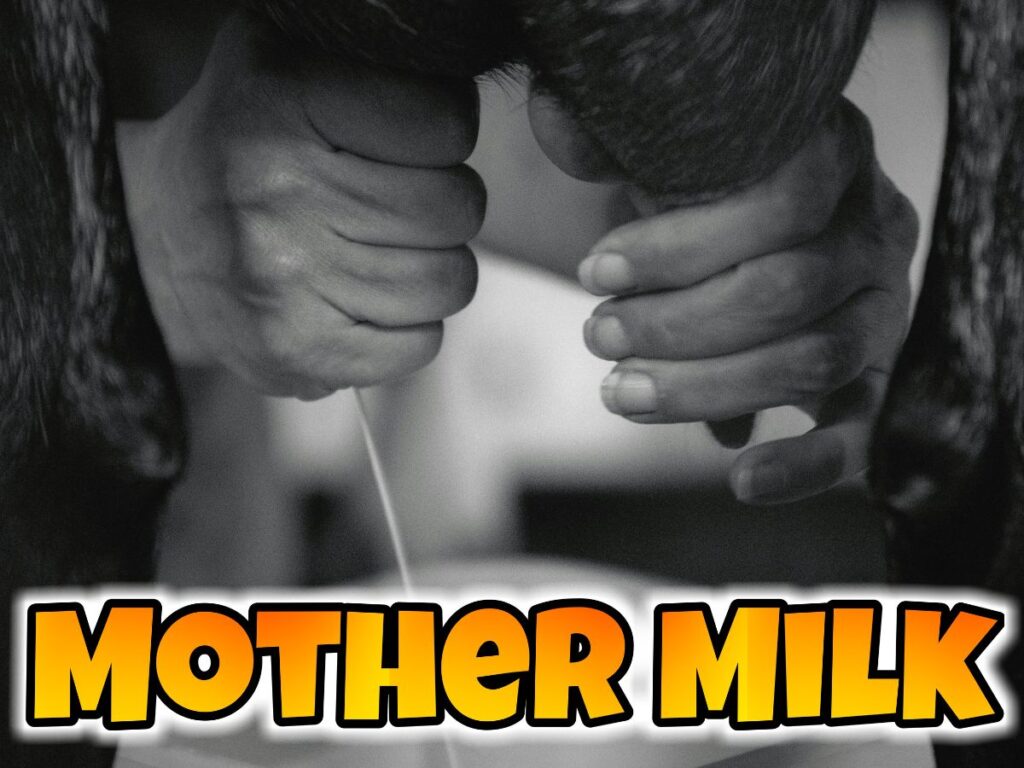Mother Milk | A Reflection on God’s Wisdom

Introduction:
In this amazing macrocosm, everything seems to fall into place impeccably. But is it really just a coexistence? Let’s explore the inconceivable design behind the birth of a child, mother milk and the conformation of our eyes.
When a baby is born, they do not crave solid foods like parathas or tea. rather, they artificially seek the aliment of their mama ‘s milk. This milk, especially acclimatized for the baby’s requirements, is produced in the mama ‘s guts from the moment the child enters the world. It’s a miraculous process that no box of milk could replicate. Scientists worldwide agree that there is no better aliment for a invigorated than mama ‘s milk. But how did this intricate system come into being? Was it simply a result of elaboration? If so, why did elaboration equip maters
with such a perfect medium to nurture their babies? suppose about it; a invigorated baby is not just looking for any milk; they need the exact aliment that only their mama ‘s body can give. This motherly love is not just automatic; it’s a godlygift.However, also why do not we see the same love in all beast species? Allah’s operation is apparent then; creatures with fast- growing populations frequently warrant this motherly care, whereas those with smaller seed show immense love for their youthful, If it were simply a natural instinct.
Now, let’s talk about the phenomenon of the mortal eye. It’s like a high- tech digital camera, landing images and transmitting them to the brain. But could such a complex system have evolved aimlessly? Scientists have created cameras grounded on the design of the mortal eye, but they blench in comparison to the original. Imagine trying to make a camera from scrape. It needs power, accoutrements like plastic and glass, and intricate factors like iron and bobby.
Yet, the mortal eye forms naturally in the mama ‘s womb, using nutrients from her diet, whether it’s roti, parathas, pizza, or indeed meat. This is not commodity that can be replicated by arbitrary chance or elaboration. Some people endorse for vegetarianism or trendy diets like keto. But does eating vegetables really turn into meat? A croaker
formerly explained it impeccably just as a buffalo eats lawn and converts it into meat, our bodies can transfigure a variety of foods into essential nutrients for organs like the eyes, nose, heart, and brain. While meat is indeed important for our health, balance is crucial. barring beef from our diets, as some Hindus have done, is not the answer.
Likewise, blindly following style diets without considering our nutritive requirements is not natural or sustainable As we continue our disquisition of the cautions of creation, let’s claw into the complications of the mortal body and the godly wisdom behind its design. When a baby develops in the mama ‘s womb, it’s nothing short of a phenomenon.
Every organ, every system, forms with perfection and purpose. Take, for illustration, the heart — the central pump that keeps our blood flowing. This vital organ begins to develop just a many weeks after generality, and by the time the baby is born, it’s completely functional, ready to support life outside the womb. But how does this complex process unfold? It’s not just a matter of chance or arbitrary mutations; it’s a strictly orchestrated symphony of natural processes. From the emulsion of sperm and egg to the conformation of bitsy fritters and toes, every step is guided by an unseen hand.
Consider the mortal brain, arguably the most complex organ in the body. It’s composed of billions of neurons, each one connected in a vast network that governs our studies, feelings, and conduct. Yet, despite its complexity, the brain begins to develop early in fetal development, with different regions specializing in colorful functions. But then is where it gets indeed more astonishing the brain is not just a natural computer; it’s also the seat of knowledge and tone- mindfulness. How does a bare collection of cells give rise to our studies, dreams, and bournes ?
Science may give some answers, but eventually, the riddle of knowledge remains one of life’s topmost mysteries. Moving on to our senses, let’s consider the gift of sight. Our eyes are like perfection instruments, able of landing the subtlest details of the world around us. From the vibrant colors of a evening to the delicate petals of a flower, our eyes allow us to witness the beauty of creation in all its glory. But sight is further than just a physical process;
it’s also a spiritual experience. When we peer upon the prodigies of nature, we can not help but feel a sense of admiration and reverence for the Creator. It’s as if every evening, every starry night, is a memorial of Allah’s horizonless power and wisdom. And what about our sense of touch, taste, and smell?
Each bone plays a vital part in shaping our gests and comprehensions of the world. Whether it’s the comforting grasp of a loved one or the aroma of lately ignited chuck,
our senses enrich our lives in innumerous ways. But maybe the most remarkable aspect of our actuality is our capacity for love and compassion. From the tender bond between a mama and her child to the selfless acts of kindness we show to others, love is the force that binds us together as mortal beings.
Conclusion :
In conclusion, the mortal body is a testament to the wisdom and mercy of our Creator. From the moment of generality to our final breath, every aspect of our actuality reflects Allah’s horizonless wisdom and grace. As we phenomenon at the cautions of creation, let’s noway forget to express gratefulness for the innumerous blessings we have been given. Stay tuned for further reflections on the prodigies of our world.
click here for more




